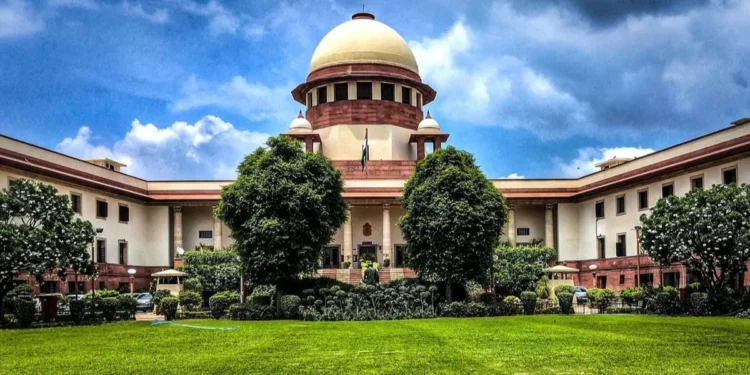Lagatar24 Desk
New Delhi: A Supreme Court hearing in Congress MP and poet Imran Pratapgarhi’s case took an unexpected turn on Monday as a legal debate over freedom of speech turned into a lively exchange on poetry between Solicitor General Tushar Mehta and senior advocate Kapil Sibal.
SC Questions FIR Against Pratapgarhi
The bench of Justice Abhay S Oka and Justice Ujjal Bhuyan expressed concern over the police action against Pratapgarhi, who was booked for sharing a video featuring the lines “Aye khoon ke pyaaso baat suno” on social media. The Rajya Sabha MP faces an FIR for allegedly inciting religious sentiments.
While hearing Pratapgarhi’s plea challenging the Gujarat High Court’s refusal to quash the FIR, Justice Oka emphasized the need to protect freedom of speech, stating:
“The police must show some sensitivity before registering an FIR. Seventy-five years after the Constitution, the freedom of speech and expression should now be properly understood.”
“It’s Not Against Any Religion” – Justice Oka
Justice Oka pointed out that the poem promoted non-violence rather than targeting any religion.
“Even if somebody indulges in violence, we will not respond with violence. That is the message the poem gives,” he said. The court reserved its judgment on the matter.
Legal Banter Over Poetry
The courtroom saw moments of humor when Solicitor General Mehta, representing the Gujarat government, dismissed the poem as “sadak chhap” (pedestrian) and objected to it being attributed to Faiz Ahmed Faiz or Habib Jalib.
At this, Kapil Sibal quipped, “My poems are also sadak chhap.” To which Mehta, his frequent legal opponent, surprisingly praised him:
“No, his (Sibal’s) poems are really good!”
Justice Oka joined the banter, jokingly requesting Sibal to write a poem for him by May.
Further continuing his criticism, Mehta remarked, “I wouldn’t even call it a poem. Sher kabhi accha ya bura nahi hota; ya hota hai ya nahi hota.”
Justice Oka playfully responded, “Now you want to compete with him in writing poems?” He then encouraged Mehta, suggesting he could write poetry too.
Sibal added, “He (Mehta) has a wealth of knowledge in this area; he just isn’t trying.”
The final punchline came from Mehta, who humorously explained his reluctance to write poetry:
“People say you have to fall in love to be a poet. I have never.”
While the Supreme Court deliberates on freedom of expression, the courtroom exchange offered a rare moment of levity, reminding everyone that even in legal battles, poetry has its place.







